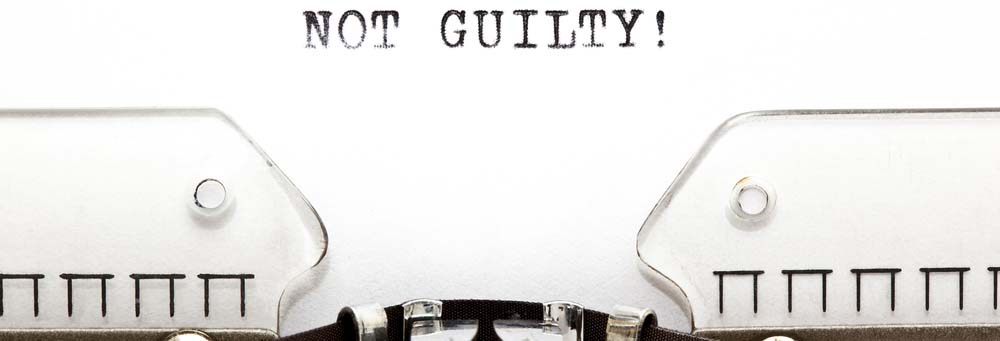Contact Us
KOGARAH OFFICE
Suite 309 – 310, Level 3
13A Montgomery Street
KOGARAH NSW 2217
SYDNEY CITY OFFICE
Ground Floor
54 Martin Place
SYDNEY NSW 2000
Email: solicitors@gmhlegal.com
Phone: (02) 9587 0458
Facsimile: (02) 9587 2936
JAIL
The following section will you a brief presentation of the correctional system in New South Wales.
At GMH Legal we have a team of dedicated criminal lawyers with a vast experience in dealing with inmates in prison.
Do not hesitate to contact us if:
- You are on remand, or arrested and not given bail, and you want to apply for bail
- You want to know how your sentence is calculated
- You have questions about parole or early release
- You have questions about the risk of deportation after sentencing
- You have new charges while on parole or while in custody
- You have had requests to see a doctor refused after writing to the General Manager of the prison.
Under what circumstances will I be sent to jail?
You may find yourself in jail, if one of these things happen:
- You are arrested and charged with a criminal offence and the police do not give you bail before you go to Court the first time
- You have been to court but you put off your matter so you are on remand, and the Court does not give you bail
- You have been convicted but you are still waiting to be sentenced and the Court does not give you bail
- You are serving a sentence
How long will I have to spend in jail?
If you are on remand, or arrested and not given bail, you will stay in jail until your next court date and then you can apply for bail.
If you have been convicted and the Court says you will be punished by going to jail, the Court will say how long you are to stay in jail. You may not end up staying in jail for the whole time the Court says.
When the Court sentences an offender to be imprisoned for more than 36 months, there may be a minimum prison term set, followed by a period of time which may be spent in the community on parole. Prisoners cannot receive time off their sentence for good behaviour during this period, so you should expect they will serve the full amount of their minimum sentence.
For more information, please refer to Legal Aid’s ‘Prison’ section.
What are my rights in jail?
While in jail, you have the following rights:
- To talk to a lawyer
- To receive some Centerlink payments
- To have visitors
- To receive letters and parcels
- To make telephone calls
- To file complaints
- To receive medical care
- To vote in elections (with minor exceptions)
- To apply to be transferred to another prison.
How can I get transferred to another prison?
Should a prisoner feel they have a strong welfare case to apply to have their prison sentence transferred to another prison, they can discuss it with their Case Manager or Social Worker and lodge an application.
A prisoner wishing to transfer must have a strong family-based or other welfare reasons and supporting documentation in order for the application to be appropriately considered.
Prisoner transfers involve the consideration of a great deal of information and can therefore take some time to process.
How can I transfer a pending Parole order?
Should a prisoner wish to transfer a pending Parole Order upon release the prisoner can discuss the possibility of an application with their Case Manager or Social Worker prior to release. A reason might be that all the prisoner’s family support is in another state or territory, or an ongoing offer of employment has been made to the prisoner upon release in another location.
A current parolee who has a strong case for transfer can also be considered.
How can I contact a friend or relative in custody?
If you have a friend or relative in custody, the normal method of contact is by letter addressed to the inmate. If you know the inmate’s Master Index Number (MIN), that should be written on the front of the envelope. The postal addresses of every correctional centres in NSW are available here.
If you do not know the correctional centre where the inmate is located, mail can be sent to the following address:
Sentence Administration Branch
Corrective Services NSW
GPO Box 31
Sydney, NSW 2001
In addition, inmates can contact their families, friends and solicitors by telephone. They are allowed up to 10 nominated personal numbers (family and friends) and 3 legal numbers (solicitors). The recommended maximum call duration is six minutes for local personal calls and 10 minutes for legal calls and international personal calls.
For more information, please refer to the NSW Corrective Services’ ‘Frequently Asked Questions (FAQ)’ section.
Can I sent money to a family member in prison?
Anyone who deposits money for an inmate (either by post or in person) has to be registered by the Corrective Services as a ‘personal contact’ of that inmate. This means an electronic record of your personal details, including name, address, date of birth, identification and relationship with the inmate will be created.
Funds should be sent by cheque or money order. Cash should not be sent through the post. Cheque or money orders should be made out in the full name of the inmate.
Prisoners can only receive up to $100 a week in total for their personal use and only have a maximum of $100 in their account. If you send any more, it will be put into another account and they won’t be able to use it until they are released from prison.
Being registered as a personal contact to send money does not mean that one can visit the inmate. Appropriate identification will still have to be presented when visiting a correctional centre.
Please contact the Accounts Clerk at the correctional centre where the inmate is located to confirm these procedures.
Services for family of offenders
When someone commits a crime and is sentenced to a custodial or community-based centre, there can be severe negative consequences for the family and other who have a close relationship with this person.
For many families, visiting a correctional centre is a regular weekend activity that may require long periods of travel. It is important that families are not penalised for the crimes of one of their members.
It is an established fact that helping offenders maintain relationships with families and friends can contribute to their successful integration into community life. Corrective Services NSW is committed to balancing support for family relationships with the need for the safety, welfare and well-being of children, other family members and the community at large.
Before visiting a family member or friend in any of the NSW correctional centres, you should:
- Contact the centre to confirm visiting hours
- Find out whether you need to book a visit
- Ensure that you have the right ID with you
- Find out which items are prohibited from being taken into correctional centres
- Make sure you are dresses appropriately for your visit (avoid see-through and other revealing clothing and do not wear anything that obscures your faces).
For more information, please refer to the NSW Correction Centre’s ‘Visiting a Correctional Centre’ booklet and the Corrective Services NSW ‘Visitor information’ section.
How to cope if you have a family member or a close relative in prison?
Families of prisoners have been called the ‘invisible victims of crime’. They experience discrimination often fuelled by widespread fear of crime and negative beliefs about prisoners. In addition many have said that the grief felt when their family member went to prison was as if someone had died. Unlike a death, the experience of imprisonment seems to drag on indefinitely.
Signs of stress include:
- Difficulty sleeping
- Underrating or overeating
- Difficulty communicating thoughts
- Easily irritated
- Muscle tensions, headaches, stomach problems
- Disorientation, confusion and difficulty concentrating
- Reluctance to leave home
- Feeling depressed, sad or hopeless
- Mood swings and crying easily
- Feeling of guilt and self-doubt
- Increase use of drugs, alcohol or gambling to escape or ease the pressure.
The lack of support within our community can make it difficult for family to express their sadness openly. As a result, they often hide their feelings from others and try to ‘soldier on’.
For more information, please refer to the Corrective Services NSW’s ‘Families handbook’.
Children of inmates
Most people find it hard to tell children that their parent is in a correctional centre. Sometimes people pretend that their parent has gone overseas, or that they have gone away from work.
If children don’t know what happened to their parent, they may feel worried and confused. They may pick up more than people realized and be aware that something is wrong. Not being able to talk about how they feel and about what’s happening can leave them lost and isolated.
If children find out the truth alter on, they may lose trust in people who withheld information from them. There is no right time to talk to your child, usually the sooner you talk to them, the better. Putting it off may just make it harder to tell the truth in the end.
Families and carers may be unsure about taking children to visit their parent in a correctional centre. Children’s visits often help both parents and children to deal with the pain of separation. Visits allow children to deal with the pain of separation and help them replace their fears and fantasies with a more realistic understanding of their parents’ circumstances.
Regular contact gives children some sense of routine in their communications. It builds a sense of security and predictability, both of which can reduce the negative effects of parental separation.
Posting children’s drawings, copies of school assignments or photograph can help provide topics for conversation during visits and can help parents and children feel more connected.
How to prepare children for visits
Children will cope better if they know what to expect during visits. Below are some suggestions such as inform the children of:
- How long it will take to get to the correctional centre
- What the officers will be wearing
- The security and search procedures
- What the visiting centre will look like
- How long the visit will last
For more information, please refer to the Corrective Services NSW’s ‘Families handbook’.
Call the experienced team at GMH Legal to assist you in your matter.
A free consultation with GMH Legal is an opportunity to gain deep insights into your legal situation and all of your options.
Why Choose GMH Legal?
- Over 60 years of combined legal experience
- Outstanding track record with a winning approach
- First appointment is always free
- Meet our team now.






